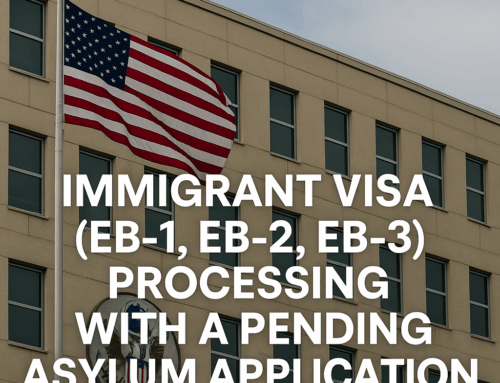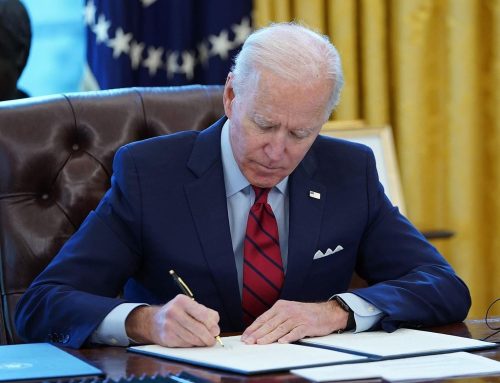
Russian protester opposing the war in Ukraine, a key issue in recent U.S. asylum cases.
Asylum from Russia: Opposition to the War in Ukraine
We are pleased to share that we recently secured asylum approval for a Russian dissident who faced persecution due to his outspoken opposition to Russia’s war in Ukraine. He also supported Ukrainian forces and humanitarian causes. We got many approvals for asylum for Russian opponents of the war in Ukraine. Asylum from Russia is an approvable case if you meet the certain requirements which we explain in this guide based on our experience securing Russian asylum approvals.
This case highlights important legal elements for asylum claims based on refusal to participate in military actions or support an unlawful war, particularly in the Russian context. It also demonstrates what makes a Russian asylum case strong, especially for individuals who take clear, provable steps to oppose the war and expose themselves to real danger.
Case Background
Our client, a Russian citizen, had already faced fabricated criminal charges and government persecution before the war. Since Russia’s full-scale invasion of Ukraine, he has engaged in public and material support of Ukraine:
-
Organized and provided humanitarian aid to refugees and civilians in Ukraine
-
Financially supported the Armed Forces of Ukraine, a crime classified as high treason under Russian law
-
Publicly criticized the Russian government and its war policies on social media and other platforms
-
Assisted Ukrainian soldiers and provided material support through personal contacts
-
Sponsored Ukrainian refugee families through the Uniting for Ukraine program
His spouse is a Ukrainian citizen, which further increases the family’s risk of persecution in Russia. Russian authorities view ties to Ukraine as a basis for targeting individuals with surveillance, detention, and criminal charges.
What Makes a Russian Asylum Case Strong
While many Russians seek asylum based on general opposition to the war or potential military conscription, not all claims are equally viable. The following elements strengthen a case:
-
Evidence of past persecution that is not limited to general draft avoidance, such as political dissent or fabricated charges
-
Clear and public acts of opposition to the war that go beyond private opinions
-
Material support for Ukraine that can lead to severe criminal penalties under Russian law
-
Strong documentary evidence and third-party attestations of the applicant’s activities and political views
-
Family connections that place the applicant at increased risk, such as marriage to a Ukrainian citizen
-
Credible fear of persecution, imprisonment, torture, or death upon return
Legal Framework: Asylum for Refusal to Serve in Military
Under United States asylum law, refusal to serve in the military is not automatically grounds for asylum unless you meet specific conditions. According to international and United States case law, a claim is more likely to be viable when:
-
The military service would require the applicant to engage in internationally condemned acts or in violations of basic human rights, such as participation in an unlawful war of aggression.
-
You refuse to serve based on a genuine political, religious, or moral belief, not simply personal dislike of military service or fear of injury or death in a combat. See Matter of A-G-, BIA (1987).
-
You can demonstrate a well-founded fear of persecution based on that refusal, and you support your claim by documented political activities or public opposition.
The United Nations High Commissioner for Refugees guidelines further support asylum for those who would be forced to participate in acts contrary to the basic rules of human conduct. See UNHCR’s Position on Certain Types of Draft Evasion. Asylum for refusal to serve in military is generally not a strong basis for asylum without the above elements.
In the Russian context, the international community had widely condemned the invasion of Ukraine as a violation of international law. Direct opposition to the war and refusal to participate in or support it, especially when combined with documented public activism or expression of opinion, can form the basis of a viable asylum claim.
Avoiding the Pitfall of Simple Desertion
It is critical to distinguish between simple draft avoidance or desertion, which often does not support asylum, and refusal to serve in an unlawful war or engage in condemned acts, combined with documented opposition and a clear risk of persecution for those views and actions.
In this case, our client did not merely avoid military service. He actively opposed the war, provided material support to Ukraine, and faces a documented risk of arrest and imprisonment under Russian criminal laws. This was central to our successful argument.
Conclusion
This approval adds to our record of helping Russian dissidents and war opponents obtain asylum in the United States. If you are a Russian national opposing the war in Ukraine, or if you are an attorney working on similar cases, it is vital to understand what makes such a claim viable:
-
Go beyond fear of conscription and document public opposition and acts that expose the applicant to real risk
-
Provide clear evidence of humanitarian, political, or material support for Ukraine
-
Address and document the legal penalties the applicant faces in Russia
-
Show a well-founded fear of persecution based on political opinion, not simple draft evasion
At I.S. Law Firm, we have extensive experience navigating the legal intricacies of asylum for Russian dissidents and opponents of the war in Ukraine. Our staff is fluent in Ukrainian, Russian, Azerbaijani, Turkish, Tatar, Urdu, Farsi, and Spanish languages.
If you need assistance with an asylum case based on opposition to the Russia’s invasion of Ukraine, or if you wish to consult about strengthening an existing case, please contact us to schedule your consultation.






